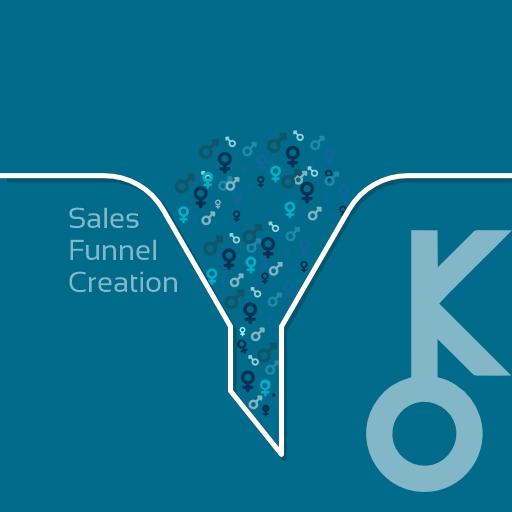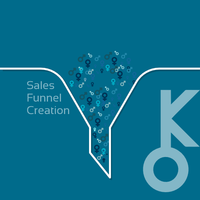Building a Sales Funnel: Identifying Target Audience

One of the most critical aspects of building an effective sales funnel is to identify and understand your target audience. Your target audience consists of the specific group of people who are most likely to be interested in your products or services. By understanding their needs, preferences, and behaviors, you can tailor your marketing efforts to effectively communicate with them and guide them through each stage of the sales funnel.
Why Is Identifying Target Audience Important?
Identifying your target audience is crucial because it allows you to focus your marketing resources effectively. Instead of trying to reach everyone, you can direct your efforts towards those who are more likely to convert into customers. This targeted approach not only increases the efficiency of your marketing efforts but also helps in crafting personalized messages that resonate with potential customers on a deeper level.
Steps for Identifying Target Audience:
Define Your Offer: Start by clearly defining what products or services you provide, their unique features, benefits, and value proposition.
Conduct Market Research: Use market research techniques such as surveys, interviews, competitor analysis, and social media listening tools to gain insights into customer preferences, pain points, demographics (age range, gender), psychographics (interests & hobbies), location (geographic targeting).
Analyze Existing Customers: Review data from existing customer base to identify common traits and characteristics among them – age group / generation they belong to, industries they work in if B2B business.
Create Buyer Personas: Based on the information gathered from market research and existing customers profiling - create fictional yet realistic representations of ideal customers known as buyer personas or customer avatars.
Identify Customer Journey Touchpoints: Understand where your potential customers interact with your brand during their buying process—online ads/ search engines/ social media/ word-of-mouth recommendations etc.
Determine Pain Points & Motivations : Identify key pain points your target audience experiences and the motivations behind their decision-making process when considering a purchase.
Test & Validate: Continuously refine and test your assumptions about your target audience by analyzing the success of various marketing campaigns implemented.
Benefits of Identifying Target Audience:
Increased Conversion Rate: By targeting those who are more likely to resonate with your offering, you can increase conversion rates as they are already interested in what you have to offer.
Improved Messaging: Understanding your target audience enables you to tailor your messaging and communication strategies accordingly, making it more relevant and persuasive. This personalized approach builds trust and strengthens customer relationships.
Effective Resource Allocation: Identifying your target audience allows you to allocate your marketing resources efficiently instead of wasting valuable time, money, and effort on reaching out to irrelevant prospects.
Higher ROI (Return on Investment): With a defined target audience in mind, you can specifically focus on channels that provide better returns on investment rather than spreading yourself too thin across all possible avenues.
Building a sales funnel begins by identifying the right target audience. Once you understand who they are and what motivates them, you can create compelling content, effective marketing strategies, and seamless customer experiences throughout each stage of the funnel – from awareness to conversion.
Sponsored
Sponsored
Sponsored
Explore More:

The Impact of AI and Machine Learning
As technology continues to advance at a rapid pace, businesses are constantly looking...

Future of Sales Funnels
The future of sales funnels is an exciting and promising concept for businesses...

Lessons Learned from Failed Funnels
In the realm of sales funnel creation, case studies serve as valuable resources...

Successful Sales Funnel Examples
In sales funnel creation, case studies play a crucial role in demonstrating the...

Case Studies in Sales Funnel Creation
In the world of sales and marketing, case studies play a crucial role...

Sales Funnel Recovery Strategies
Sales funnels are a critical component of any successful sales and marketing strategy....

Improving Funnel Efficiency
A sales funnel is a crucial component of any business's marketing strategy. It...

Identifying Funnel Leaks
A sales funnel is a systematic approach to guiding potential customers through a...

Sales Funnel Troubleshooting
Sales funnel troubleshooting is the process of identifying and resolving issues or bottlenecks...

Sales Funnel Tools and Software: Landing Page Builders
Sales funnels are essential in driving conversions and increasing revenue for businesses. To...

Sales Funnel Tools and Software: Email Marketing Tools
Sales funnel tools and software refer to the various technologies and platforms available...

Sales Funnel Tools and Software: CRM Software
Sales funnel tools are software programs or applications designed to help businesses track...

Sales Funnel Tools and Software
A sales funnel is a framework used by businesses to guide potential customers...

Measuring Sales Funnel Performance: Analytics and Reporting
Measuring sales funnel performance analytics and reporting is a crucial aspect of any...

Measuring Sales Funnel Performance: Sales Funnel Metrics
Measuring the performance of your sales funnel is crucial for understanding the effectiveness...

Measuring Sales Funnel Performance: Key Performance Indicators (KPIs)
Measuring the performance of a sales funnel is crucial for any business aiming...